Mondays
Cinema of Childhood: Magic and Oatmeal Porridge
Programmed by Elspeth Carroll
Essay by Elspeth Carroll
I have maintained open channels with my childhood. I think it may be that way with many artists. Sometimes in the night, when I am on the limit between sleeping and being awake, I can just go through a door into my childhood and everything is as it was – with lights, smells, sounds and people. ... I remember the silent street where my grandmother lived, the sudden aggressivity of the grown-up world, the terror of the unknown and the fear from the tension between my father and mother.
—Ingmar Bergman
A liminal space between the fantastical and the mundane – "magic and oatmeal porridge" (Bergman, again) – it's no wonder childhood has proved such fertile ground for filmmakers. It's a time of exploration, of unrestrained imagination, and, when it should find itself bumping up against the artificial walls of the adult world, of pure rebellion.
Bergman's childhood brought him to film. Raised by a cold, puritanical father, the world of fantasy – a magic lantern, a puppet theatre – offered a welcome respite from a rather grim reality. To a young boy, lonely and powerless, the idea of touching people – and exercising a sort of control over them – proved endlessly enticing.
The world of film is never far from the fantasy world of children. Lamorisse (The Red Balloon, White Mane) began making films to "bring to life his childhood dreams." His films, like many in this series, are both vehicles for – and celebrations of – childhood fantasy. For the protagonists – small and powerless in a world of arbitrary rules, senseless routine and unmitigated cruelty – imagination is the one area upon which they can exercise a kind of control. For Ana (Spirit of the Beehive), Pascal (The Red Balloon) Ludovic (Ma vie en rose) and Alexander (Fanny and Alexander) fantasy offers a sort of reprieve from a bleak adult world. A red balloon, brought to life, leads Pascal past the bombed-out buildings which line the streets of a particularly grey, cold Paris. A Republican soldier, seeking refuge from the war, becomes to Ana a spirit only she and her all-knowing sister can see. Alexander is delivered from his cruel stepfather's dreary home by an act of pure magic.
If children cannot altogether make sense of the adult world then that, we are asked to believe, is more of a blessing than a disadvantage. It is the children in these films who (as Truffaut would say in praise of Rossellini's Germany Year Zero) are "portrayed as the center of gravity, while the atmosphere around them is the one that's frivolous." Oskar's (The Tin Drum) incessant beating of the drum may seem like a sign of madness, but in a world overcome by insanity (the rise of Hitler, the brutality of World War II) setting aside the drum and adhering to the adult rules of respectability can hardly be seen as a sane course of action.
It is this failure – or refusal – to conform that seems to shield these children from even the most trying of circumstances – war, poverty, abuse – and allows them, too, to float above the dreariness of the everyday. It is as if, as a young mother remarks in Small Change, these children "exist in a state of grace," passing "untouched through dangers that would destroy an adult."
2014-09-29 @ 7:00 PM
Small Change
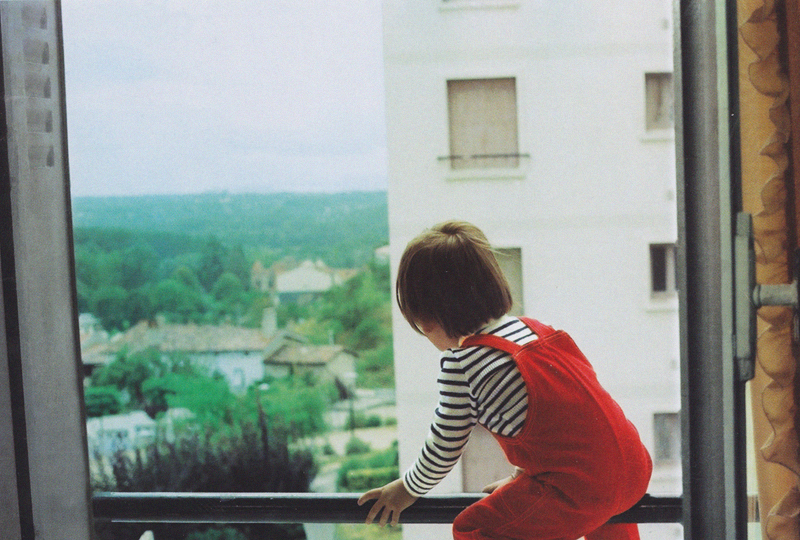
(François Truffaut, 1976) · With a cast composed almost entirely of non-actors, Small Change offers fragmentary glimpses into the lives of the children of Thiers. With his 1959 debut, The 400 Blows, Truffaut had sought "not to depict adolescence from the usual viewpoint of sentimental nostalgia, but . . . to show it as the painful experience that it is." 17 years later, in this playful, poetic film, he revisits the subject with the same aim but a slightly lighter touch.
runtime: 104 min format: 35mm
2014-10-06 @ 7:00 PM
The Tin Drum

(Volker Schlöndorff, 1979) · Schlöndorff's Palme d'Or-winning adaptation of Günter Grass's seminal post-war novel is an atypical tale of childhood, to say the least. Oskar, a boy of unusual intelligence, decides at the age of 3, upon witnessing the absurdity of the world around him, to put a halt to his own development. An outcast with a piercing shriek, he bears witness to the rise and fall of the Third Reich. Bennant's performance as Oskar is particularly deft and unnerving.
runtime: 163 min format: DCP
2014-10-13 @ 7:00 PM
The Spirit of the Beehive
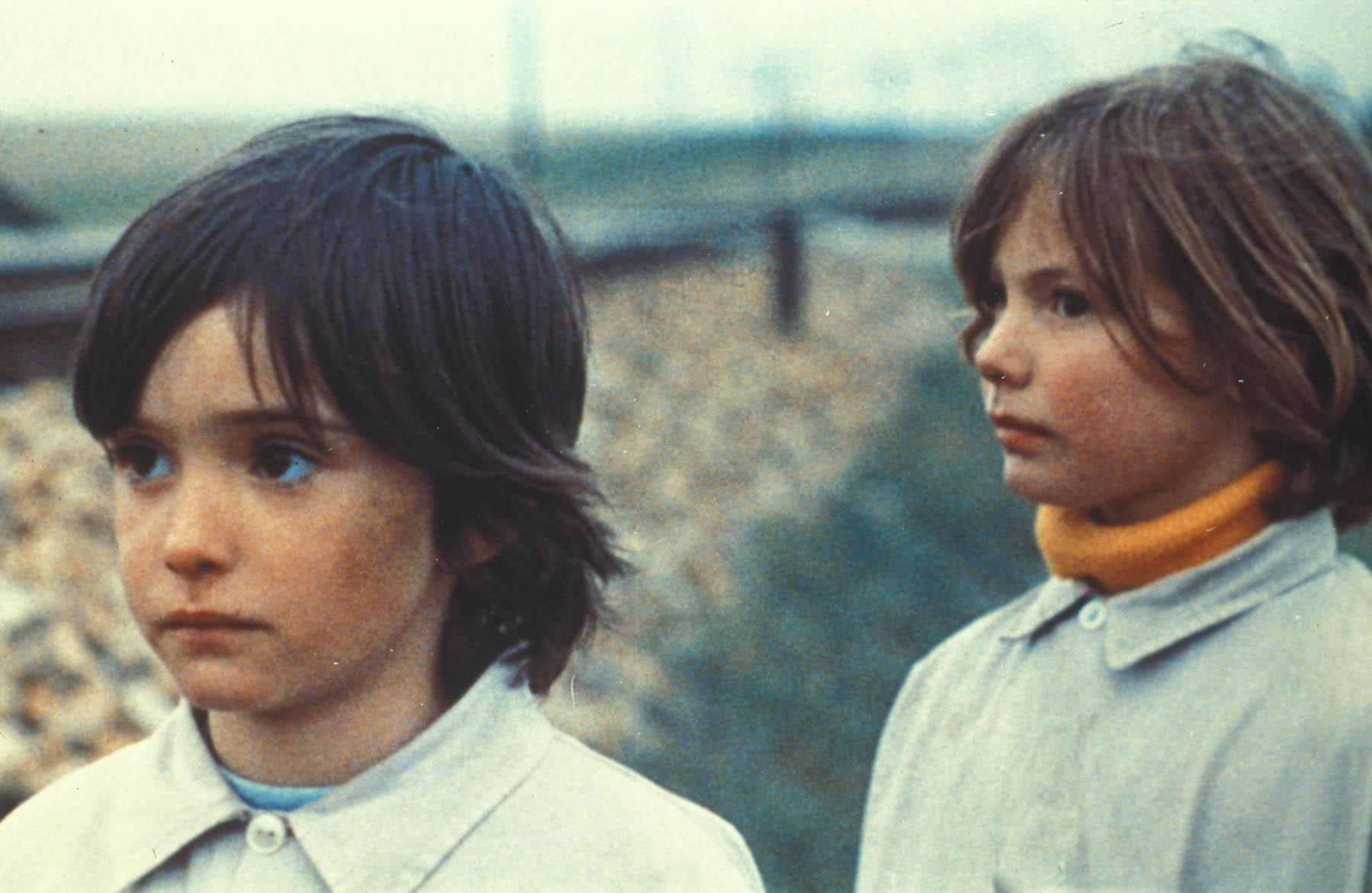
(Víctor Erice, 1976) · Set in 1940s Spain at the beginning of the Franco regime, The Spirit of the Beehive is Víctor Erice's first and finest film. We experience the trauma of war through the wide eyes of 7-year-old Ana (Ana Torrent), a girl whose obsession with Frankenstein (1931) is just one component of her childlike confusion of reality and fantasy. The film's dreamlike quality owes much to the sun-drenched, magic-hour images of cinematographer Luis Cuadrado.
runtime: 99 min format: 35mm
2014-10-20 @ 7:00 PM
Good Morning
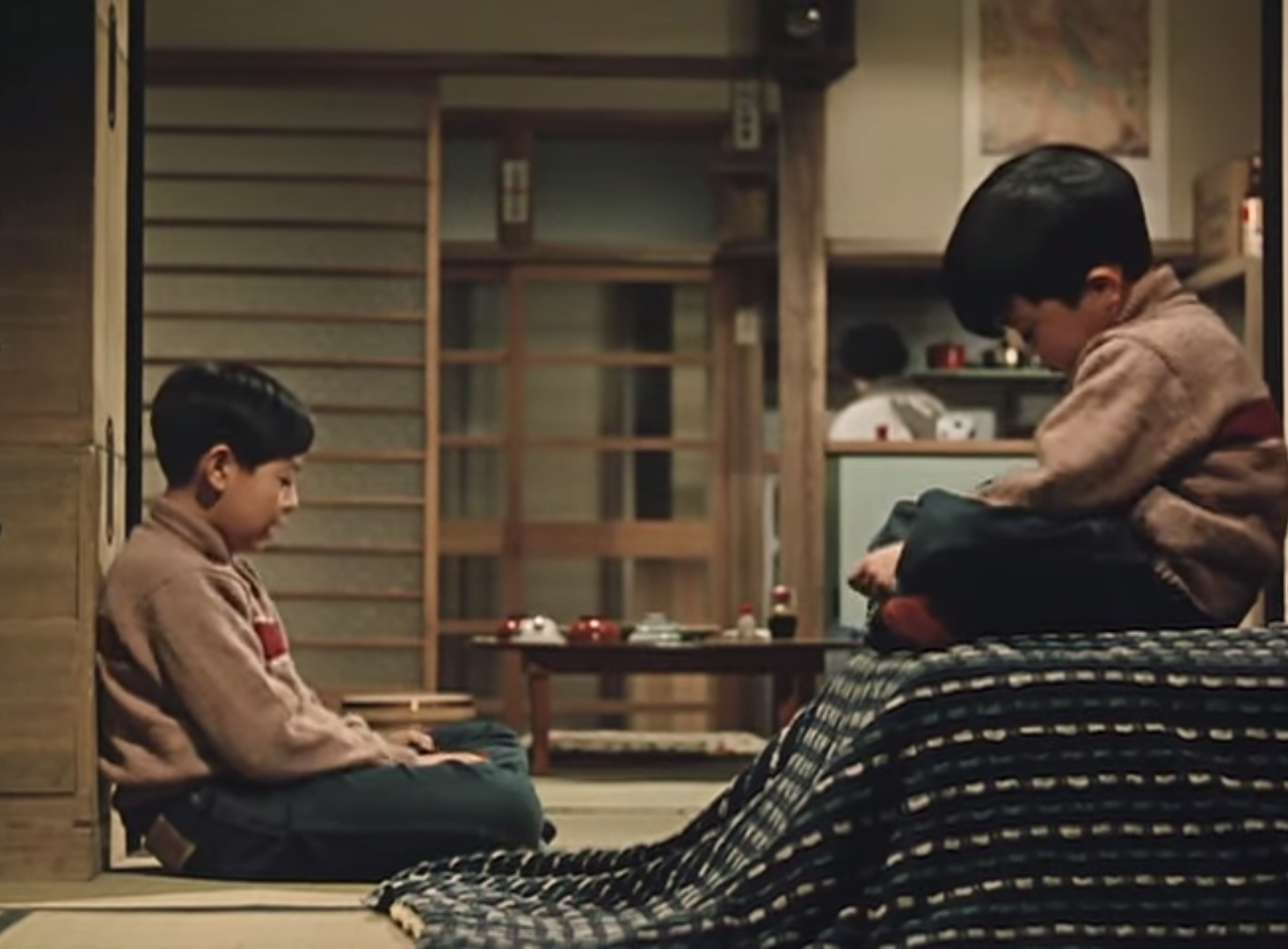
(Yasujirō Ozu, 1959) · Ostensibly a remake of his 1932 silent "I Was Born, But...", Good Morning, which follows two brothers' vow of silence against all adults (launched in pursuit of a new TV) amidst the daily intrigues of their cramped Tokyo suburb, is something of an outlier in director Ozu's oeuvre. Though the film is in some ways a closely-observed domestic drama like all his films, here he also trades the elegiac for the comic, as fart jokes and physical humor abound.
runtime: 94 min format: 35mm
2014-10-27 @ 7:00 PM
Pather Panchali
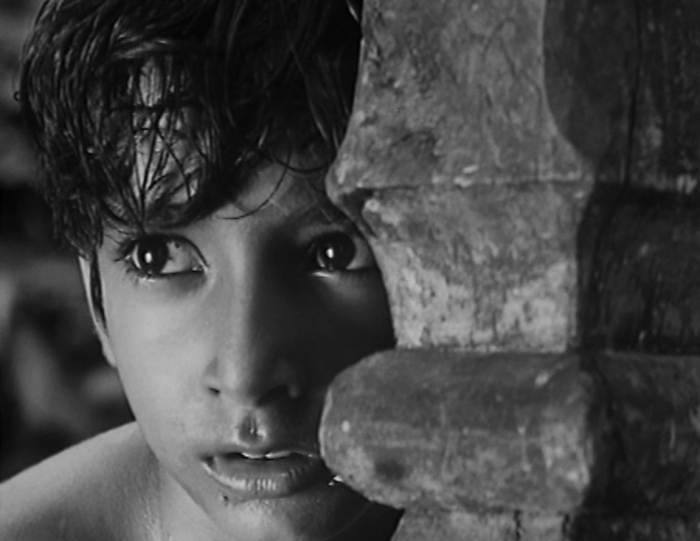
(Satyajit Ray, 1955) · Inspired by Italian neorealism and encouraged by Jean Renoir (whom he assisted a few years earlier during the filming of The River), Ray set out to make his first film, Pather Panchali, in 1950. He discovered the source material—a Bengali Bildungsroman—by chance while designing book covers. Shot unscripted on location with a limited budget and an inexperienced crew, it would become one of the first Indian films to receive international acclaim.
runtime: 126 min
format: 35mm
Print courtesy of the Academy Film Archive
2014-11-03 @ 7:00 PM
Fanny and Alexander
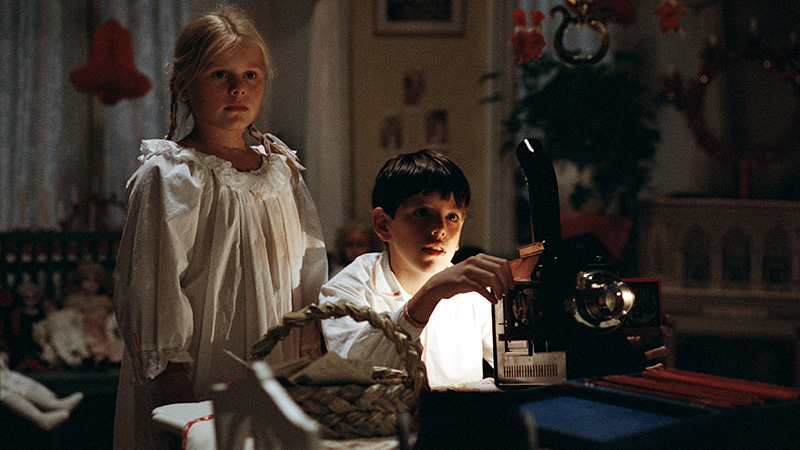
(Ingmar Bergman, 1982) · Intended by Bergman to be "the sum total of [his] life as a filmmaker," Fanny and Alexander follows the lives of the willful, imaginative Alexander, his younger sister and their large, theatrical family over several years in the town of Upsalla, Sweden. A rich tapestry, the film draws from Bergman's own life as well as the novels of Charles Dickens. Infused with great warmth and a sense of magic, it ranks among the director's finest work.
runtime: 188 min format: 35mm
2014-11-10 @ 7:00 PM
The Red Balloon & White Mane
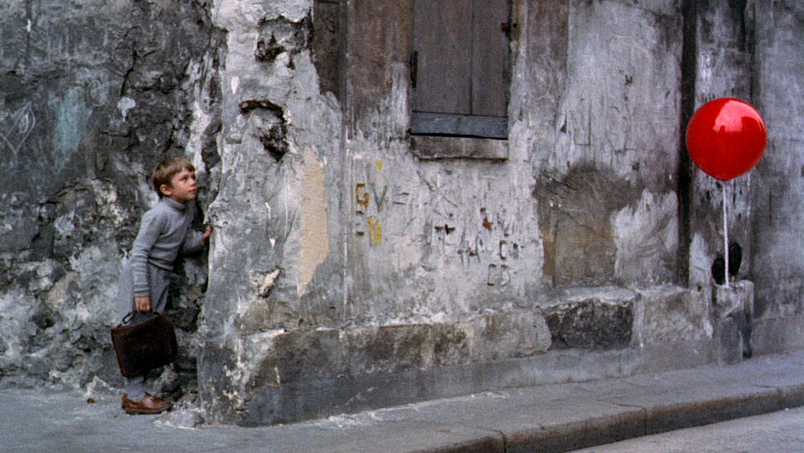
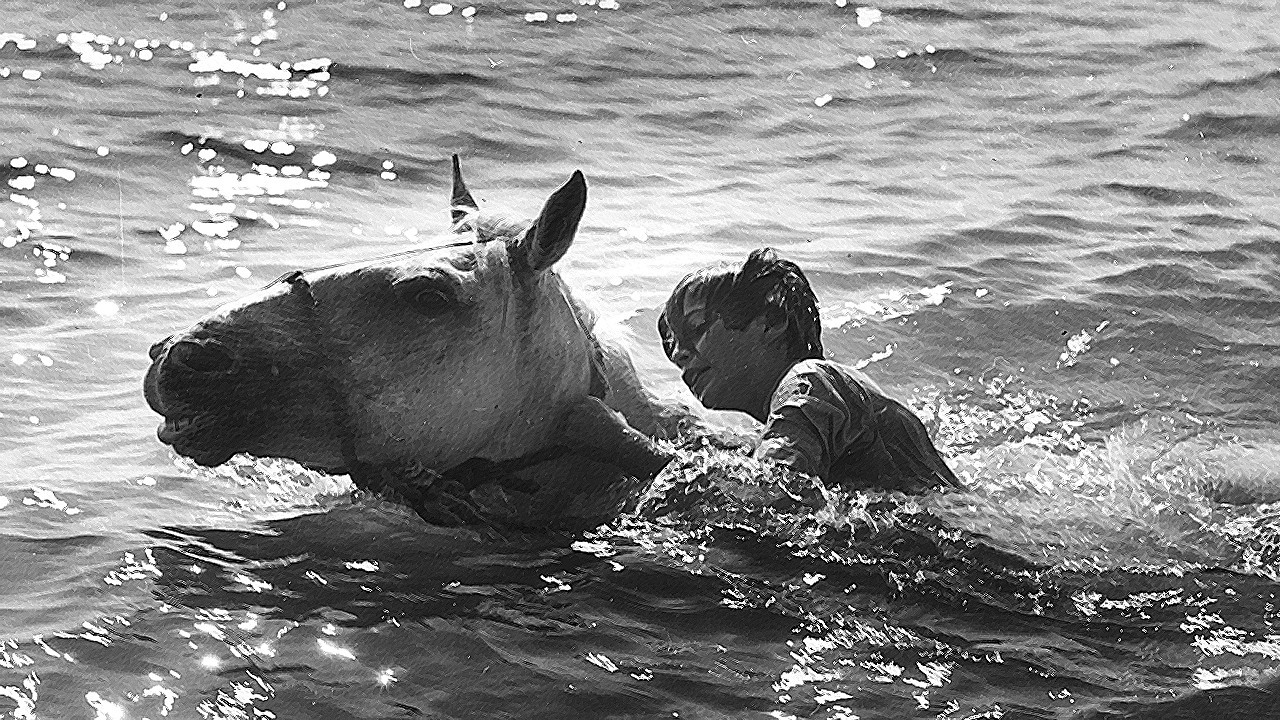
(Albert Lamorisse, 1956 & 1953) · Though he began his career as a documentarian, it was Lamorisse's goal in making films "to bring to life his childhood dreams." In these two tender, poetic shorts, we see both impulses—towards realism and fantasy—expressed. Against the harsh background of postwar France—the grey, bombed-out streets of Paris, the harsh plains of Camargue, these young boys (The Red Balloon's Pascal and White Mane's Folco) seek refuge in the world of fantasy.
runtime: 34 + 40 min format: 35mm
2014-11-17 @ 7:00 PM
Little Fugitive
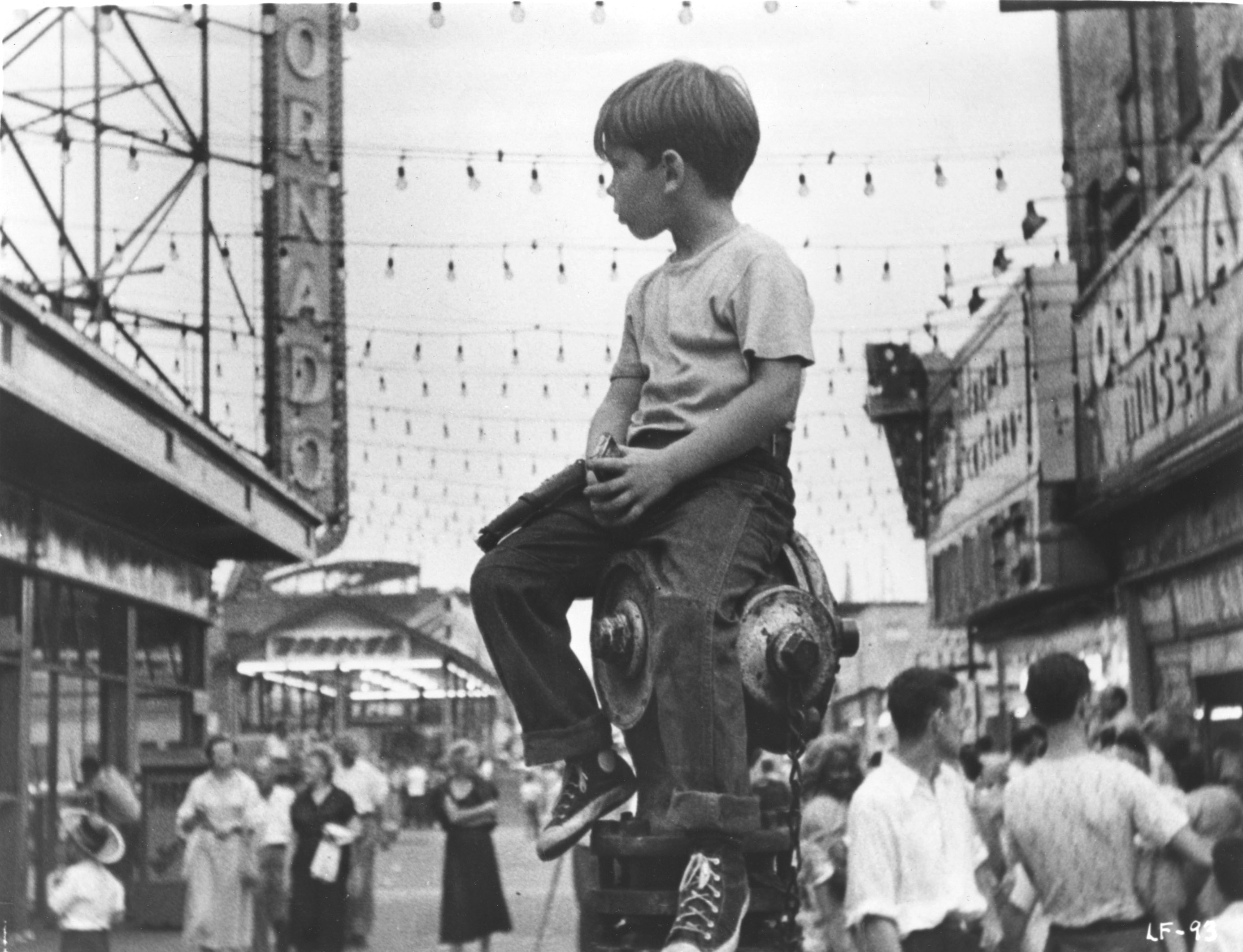
(Morris Engel, Ruth Orkin & Ray Ashley, 1953) · With a crew of three and a miniscule budget, The Little Fugitive paved the way for independent film. Filmed on location at Coney Island, it chronicles 7-year-old Joey's adventures as he flees from an imagined crime. In order to shoot unobtrusively in public, Engel designed a portable 35mm camera, which a young Stanley Kubrick later asked to rent. Truffaut would credit the film, which inspired The 400 Blows, with the birth of the French New Wave.
runtime: 80 min format: 35mm
2014-11-24 @ 7:00 PM
Ma vie en rose
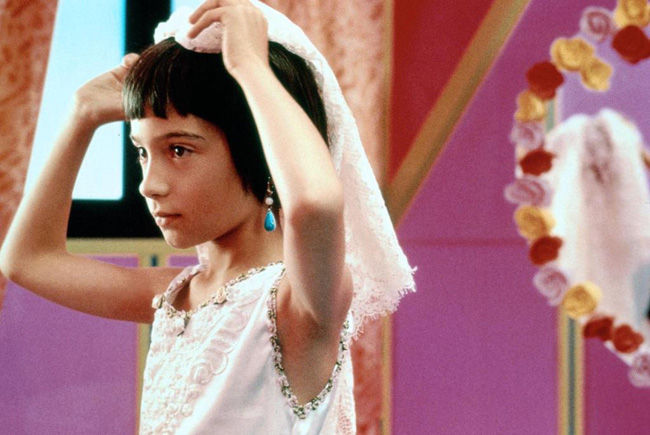
(Alain Berliner, 1997) · Alain Berliner's first feature, Ma Vie en Rose is the story of Ludovic, a 7-year-old boy certain of only two things—he should have been born a girl, and the error is sure to be corrected. This belief sets him at odds with classmates and neighbors in his conservative, middle class suburb. While serious trouble ensues, the tone is that of a modern day fairytale, with a fairy godmother—Pam, a princess who flies through Ludo's fantasies—to boot.
runtime: 88 min format: 35mm
2014-12-01 @ 7:00 PM
King of the Hill
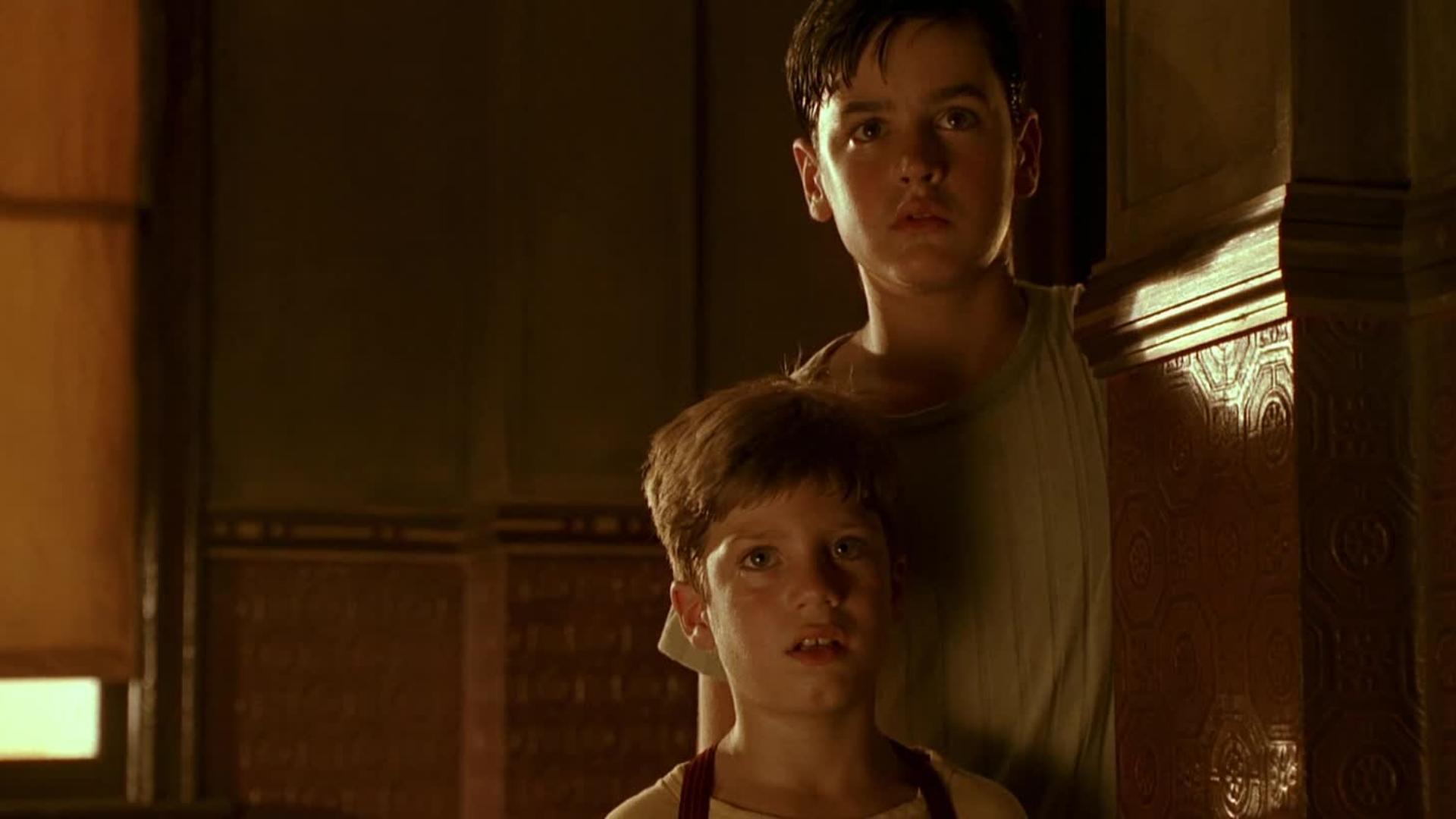
(Steven Soderbergh, 1993) · After his father, a door to door salesman, takes off travelling cross country for a watch company and his mother is committed to a sanitorium, Aaron must navigate life in depression-era St. Louis all by himself. An unlikely third feature after the acclaimed Sex, Lies, and Videotape and the flop Kafka, King of the Hill is based upon the memoirs of novelist and Hemingway biographer A. E. Hoetchner. Look for Lauryn Hill in her first screen role.
runtime: 109 min format: 35mm



